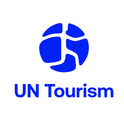Tourism confronting the Economic Downturn | UNWTO
The tourism industry can play a relevant post-crisis role. The sector has been negatively affected by the economic downturn and in all likelihood will continue to be in the short to medium term. This is not however the first time that tourism has suffered a setback and, if handled correctly, it looks set to bounce back stronger than before. This is one of the conclusions of the first meeting of the UNWTO Resilience Committee (TRC), which set guidelines for the tourism sector to overcome the current situation.
Essential conclusions of the TRC include:
- A swift course of action while keeping in mind the differences among specific tourism destinations.
- Greater cooperation amongst tourism stakeholders. History has demonstrated that crises can also provide opportunities as they call for substantial efforts and industry solidarity;
- Innovation in areas such as product development, marketing, distribution, human resources training, and all regional and national policies;
- Improved and more substantial market information: there are tools available to improve the system of data collection, market intelligence, and analysis. This area must be developed to provide a clearer overall picture and allow quicker more effective action; and
- Long term challenges: if short term crisis response is aligned with the current long term issues i.e. global poverty and climate challenges, the overall industry structure will be strengthened.
UNWTO Secretary-General ad interim, Taleb Rifai says that “It is not possible to asses how long the economic crisis will last, nor the extent of the downturn and its full impact on tourism. What is clear is that tourism can play a critical role in the recovery process as a sector with a unique resurgence capacity and an immense potential in terms of employment creation and sustainability. UNWTO’s Tourism Resilience Committee will precisely monitor the evolving economic situation and its effects on tourism. The Committees second meeting at ITB Berlin will provide further guidance to the sector.”
UNWTO highlights the relevance of keeping in mind the long term benefits of tourism, such as its capacity for job creation, contribution to local economies and poverty reduction. Tourism can also play a key role within the framework of the green economy and climate challenges.
In the face of the economic downturn the tourism industry is expected to continue its decline– at least in the short to medium term. The UNWTO expects International tourism to stagnate (0%) or even decline slightly (-1% to -2%) throughout 2009.
Amongst those most affected are the Americas and Europe as most of their source markets are already in, or entering, recession. In Asia and the Pacific the industry is expected to grow however at a slower rate than in previous years. Africa and the Middle East find themselves in a similar situation.
The UNWTO Tourism Resilience Committee is a platform for UNWTO Members to receive and share information on the current economic downturn and its impact on the tourism sector. The TRC will:
- Support the tourism industry in the face of global economic slowdown.
- Collect and analyse economic and industry data to provide real time marker information.
- Encourage the exchange of information, experience and good practice regarding response measures.
Click here for a video-summary on the first TRC meeting (Madrid, Spain, 28 January 2009).
UN Tourism Communications Department
+34 91 567 8100
UN Tourism
